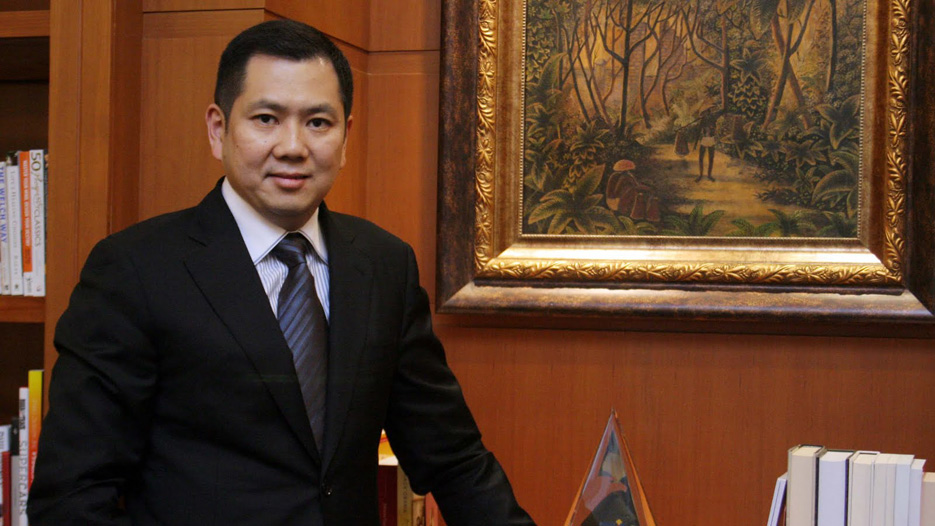Harry Tanoesoedibjo
$1.1 billion — Harry Tanoesoedibjo was ranked as Marcopolis’ #1 most powerful business man in Indonesia.

Indonesian tycoon Harry Tanoesoedibjo, known among locals as Harry Tanoe, President of MNC Group (Indonesia’s largest media company, is a corporate aristocrat with an interest in politics, launching a new political party, United Indonesia Party (Perindo), earlier this year following his departure from the National Democratic Party. The business tycoon was voted as Marcopolis’ #1 most powerful businessman in Indonesia.
In business, he completed construction of the MNC News Center, which will be the locus of his media businesses (he owns 4 national TV stations, including recently launched INews TV). Together with Indonesia’s stock market, he just launched a TV station called Indonesia Business and Capital Market Television Channel. The 50-year-old is among a breed of powerful tycoons that emerged with the downfall of the autocratic regime of former President Suharto (1967-1998).
The youngest of six siblings, he studied business at university in Canada before returning to set up a stockbroking house in Jakarta in 1990. His big break came with the Asian financial crisis of 1997-98, when Indonesia was hit hard and economic calamity led to political change, as the long-ruling autocrat Suharto was swept from power following mass protests.
Today his group spans 10 listed companies, with 30,000 employees and a market capitalisation of about $9bn.
Yet Tanoesoedibjo was in a position to profit. He took his investment company public shortly before the crisis deepened, and used the proceeds to buy his corporate crowns: three TV station networks, two of which had been run by members of the Suharto family. During Suharto’s three decades in power, his family firmly planted itself into Indonesia’s business communities.
By picking up some of the Suharto family jewels, Tanoesoedibjo emerged as a prominent post-crisis political and business figure. As a media mogul, he lured young audiences by strengthening lifestyle and entertainment content. He introduced Indonesian Idol and X Factor Indonesia — domestic versions of popular foreign shows. With an eye on global trends, his TV networks also backed JKT48, a Jakarta offshoot of Japan’s popular idol group AKB48. The three networks currently account for about a third of Indonesia’s entire TV audience.
As the Indonesian economy bounced back from the currency crisis, advertising revenue from foreign and domestic companies turned the networks into cash cows that Tanoesoedibjo milked to expand into property, toll roads and financial services. Today his group spans 10 listed companies, with 30,000 employees and a market capitalisation of about $9bn.